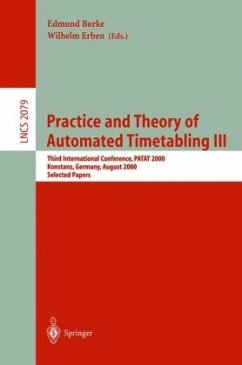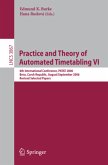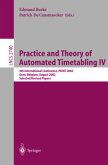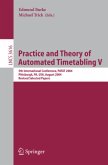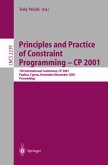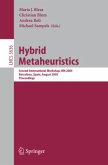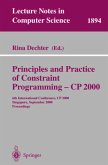This volume is the third in an ongoing series of books that deal with the state of the art in timetabling research. It contains a selection of the papers presented at the 3rd International Conference on the Practice and Theory of Automated Timetabling (PATAT 2000) held in Constance, Germany, on August 16{18th, 2000. The conference, once again, brought together researchers, practitioners, and vendors from all over the world working on all aspects of computer-aided timetable generation. The main aim of the PATAT conference series is to serve as an international and inter-disciplinary forum for new timetabling research results and directions. The conference series particularly aims to foster mul- disciplinary timetabling research. Our eld has always attracted scientists from a number of traditional domains including computer science and operational - search and we believe that the cross-fertilisation of ideas from di erent elds and disciplines is a very important factor in the future development of timetabling research. The Constance conference certainly met these aims. As can be seen from the selection of papers in this volume, there was a wide range of interesting approaches and ideas for a variety of timetabling application areas and there were delegates from many di erent disciplines. It is clear that while considerable progress is being made in many areas of timetabling research, there are a number of important issues that researchers still have to face. In a contribution to the previous PATAT conference, George M.
Hinweis: Dieser Artikel kann nur an eine deutsche Lieferadresse ausgeliefert werden.
Hinweis: Dieser Artikel kann nur an eine deutsche Lieferadresse ausgeliefert werden.

